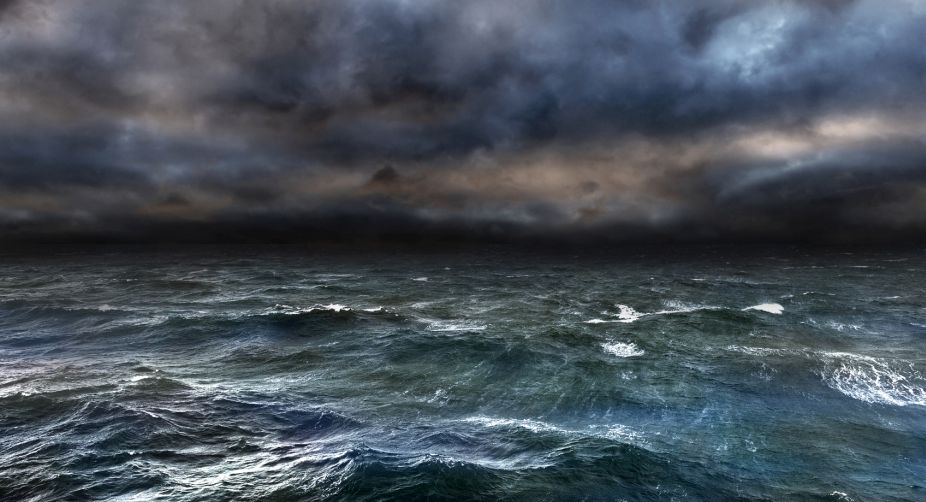When people think of climate change, pictures of melting glaciers, sweltering heat in summers and flooding of coastal areas predominate. Often lost in the imagery is the role the world's oceans play in countering the worst effects of global warming.
Although oceans and seas cover more than two-thirds of the earth's surface, they are taken for granted most of the time. People and governments forget that they are rich in resources and provide us with food, energy and minerals. It is a truism to say that since the high seas belong to no nation, they are the most exploited by everyone.
Advertisement
It is thus important to remember that oceans are crucial for the stability of the planetary climate and local weather. But due to overfishing, loss of biodiversity and ocean pollution, the future of this unique ecosystem faces a grave threat today.
It is well known that global warming is mainly caused by the carbon dioxide released into the atmosphere by burning fossil fuels like coal and oil. Since industrialisation in the 19th century, the amount of this greenhouse gas in the atmosphere has risen by as much as 40 pc.
If not for the oceans, temperatures would be even higher than they are now because they absorb a quarter of the carbon dioxide released into the air. When the concentration of carbon dioxide in the atmosphere rises, oceans absorb more to restore the balance. The colder the seawater is, the more effectively the process works.
It is in this context that mapping of the oceans on various parameters that affect human life assumes importance. To illustrate the important role played by the ocean and its ecosystems, Germany's Heinrich Böll Foundation has recently released the latest in a series of global environmental reference works called the Ocean Atlas: Facts and Figures on the Threats to Our Marine Ecosystems 2017.
The atlas aims to give a current insight of the state of the seas and the threats to them. "We hope to stimulate a broader social and political discussion about the meaning of the ocean as an important system and the possibilities for protecting it," the foundation said while launching the atlas.
The atlas clearly explains the role oceans play in battling climate change. In the Labrador Sea and Greenland Sea as well as in regions near the Antarctic coast, large quantities of surface water sink into the deep sea where carbon dioxide is stored for a long time. The lion's share of the stored greenhouse gas since the start of the Industrial Revolution will take centuries to return to the surface of the ocean again. Part of it will remain fixed in the sediment of the sea floor. That is how the ocean significantly slows down climate change.
However, the ability of the oceans to sequester carbon dioxide is not unlimited. For example, while carbon dioxide absorption in the Southern Ocean declined between 1980 and 2000, it has increased in the years since, according to the atlas. The ocean does more than absorb a considerable amount of the greenhouse gas. It also soaks up nearly all the additional warmth resulting from the manmade greenhouse effect.
According to the atlas, oceans have absorbed an astounding 93% of the excess heat over the past 40 years. Increased atmospheric temperatures are attributable to just 3% of this additional thermal energy and would be much greater if not for the oceans. The extra warmth is essentially hidden in the ocean, where it slowly spreads through the depths. Because of this, the surface temperature only increases at a snail's pace.
All of this comes at a price. Absorbing excess carbon dioxide leads to a progressive acidification of the ocean water, while absorbing excess heat contributes to rising sea levels and troubling changes in marine ecosystems. The warming of the oceans also contains dangerous feedback loops. When the rate of evaporation on the ocean surface increases, it produces more water vapor — a potent greenhouse gas — which in turn causes temperatures to rise, which causes the rate of evaporation to increase.
These feedback loops can accelerate global warming in ways that are difficult to predict, one more reason not to further burden the ocean system, the atlas warns. For this reason, meeting the goal of limiting global warming to two degrees agreed upon at the Paris Climate Conference is essential.









